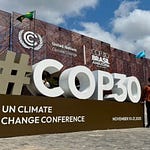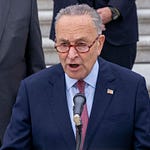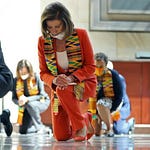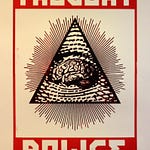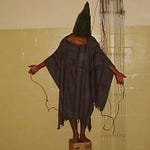Last week, renowned military whistleblower Daniel Ellsberg publicly announced his cancer diagnosis. Many Americans may have either forgotten, or never learned his extraordinary significance. No one has done as much to defend America from the predicted horrors of our military industrial complex and the relentless wars for profit it has unleashed around the world.
This post attempts to explain recent U.S. and world history to generations of Americans who seem to have forgotten it. It is also an invitation for freethinking people to honor a national and international hero, not only for the sake of offering him recognition that he probably doesn’t need, but particularly to expose a pattern that continues to repeat itself today.
“The most dangerous man in America”
In 1972, a break-in at Washington’s Watergate hotel set the stage for the end of the Nixon administration. Government goons broke into a psychiatrist’s office in order to seek files to publicly discredit his patient, a military whistleblower named Daniel Ellsberg who in 1971 publicly revealed the Pentagon Papers, a set of classified military documents exposing that Washington’s war on Vietnam was based on lies repeated by the White House.
Nixon described Ellsberg on tape as “the most dangerous man in America,” which later became the title of an important documentary film that won several awards, including the Freedom of Expression Award from the National Board of Review, and the Special Jury Award at the International Documentary Film Festival Amsterdam. “The Most Dangerous Man in America” was also nominated for an Oscar for Best Documentary in 2009.
The film’s trailer conveys the drama of the historical moment, which an entire political culture bizarrely forgot within only a single generation. The release of the Pentagon Papers, and the Nixon administration’s counter-attack, were incredibly controversial at the time—so much so that the Justice Department filed over a dozen lawsuits against major newspapers that collaborated to ensure that the public could read the facts suppressed by our government.
Ellsberg himself has observed that newspapers lack such independence today. The result is sadly apparent in news cycles repeating for decades government lies about wars from Nicaragua to Afghanistan, promoting militarism today from China to Eastern Europe, suppressing whistleblowers who continue to come forward revealing government crimes, and ignoring the bipartisan federal prosecution of a publisher who revealed to the public that the U.S. military assassinated two Reuters journalists in Iraq and never admitted it.


When I led the Bill of Rights Defense Committee in the early 2010s, we organized screenings of the film in cities across the United States, recognizing not only that most Americans never learn about our own country’s past, but also that newspaper editors have grown catastrophically co-opted and actively contribute to that ignorance.
Little did we realize at the time that the next whistleblower poised to expose government crimes was waiting in the wings and would come forward just three years later.
Inspiring successors
When the documentary about him was screened in 2010, Ellsberg explained that part of his rationale in supporting it was to encourage other figures in the federal government to follow his lead by revealing to the public crucial information kept secret for illegitimate reasons.
After Edward Snowden came forward in 2013 to reveal illegal mass surveillance unconstitutionally authorized by President George W. Bush, he credited Ellsberg for helping inspire him. The two went on to collaborate on several projects, including academic symposia; co-directing a non-profit organization focused on promoting press freedom and independence; and even creative cryptography and digital art. Their many conversations are well worth reading.
Neither Ellsberg nor Snowden were revolutionaries. Both were dedicated to the U.S. national security establishment before discovering its corruption, and they both remained public servants when giving up their careers and risking federal prosecution to do the right thing.
Any figure who adapts and grows in response to what they learn deserves praise, especially given the tendency of confirmation bias to blind people to information that conflicts with their established worldviews. Psychology has demonstrated a powerful tendency for most people to ignore whatever they would rather not see.
But beyond the moral courage and insight into ethics that their former colleagues lack, both Ellsberg and Snowden are praiseworthy for many other reasons stretching well beyond their acts of public service. Journalist Seymour Hersh, who in 1969 broke the story of U.S. Marines slaughtering hundreds of Vietnamese civilians at My Lai, recently published fascinating reflections on Ellsberg’s life ranging well beyond the world-historical acts for which he is most widely recognized.
Hersh covers Ellsberg’s reportedly stellar skills on a piano, his use of magic tricks to entertain children, and his view that the assassination of President Kennedy was never fully investigated because “any far reaching investigation into his death would have [exposed] many covert operations.”
I’ve been grateful for the chance to speak in many public settings. The appearances of which I’m most proud include a few where I was invited to speak alongside Ellsberg, like this 2014 discussion at St. John’s Presbyterian Church in Berkeley, California, featuring Cindy Cohn and Rainey Reitman from the Electronic Frontier Foundation (where I later worked from 2015-2019) and Norman Solomon from the Institute for Public Accuracy.
An ironic legacy
The last American to win the Nobel Peace Prize was President Barack Obama in 2009. His receipt of the award was based on his campaign promises to rescind the Bush-Cheney policy legacy, which he largely embraced once in office. Ari Fleischer, who served as press secretary for President Bush, noted in 2013 that “Obama is carrying out Bush’s fourth term….He’s…vindicating President Bush, all while putting a bipartisan stamp on how to fight terror.”
Obama’s record as a president was so incongruous with the aims of the Nobel Peace Prize that it eventually prompted ongoing criticism of the process and institution even by figures within it.
Ultimately, Obama’s legacy included pioneering new forms of human rights abuses, such as robotic remote assassinations that officials claimed were “targeted” even though only 10% of the casualties were intentional. Meanwhile, his administration abandoned the international human rights framework established after the Second World War by prosecuting whistleblowers (more than every previous administration in the history of our Republic combined) in order to, for example, insulate torturers in the CIA, who were ultimately promoted rather than ever held accountable for their crimes.
Many of us were critical at the time of the Obama administration’s abuses. While some reporters did occasionally feature our concerns, the press generally ignored us, before later repeatedly weaponizing itself on behalf of Washington’s military-industrial corruption when we politically challenged figureheads who deferred.
In other words, the Nobel Peace Prize was turned on its head to reward militarism, rather than those who have actually challenged it. Geir Lundestad, who served as secretary of the Nobel committee until he stepped down in 2014, said after leaving the organization that “[e]ven many of Obama's supporters believed that the prize was a mistake.”
Awarding the Nobel Peace Prize to Daniel Ellsberg would help correct that mistake, better serve the purposes of the award, encourage future whistleblowers, and shame the cadre of newspaper editors whose sustained failures have enabled every war for the past three generations.
The pattern that Ellsberg exposed continues today
Granting an international peace award to an American head of state required a remarkable leap of faith by the anonymous figures who decide the recipients of the Nobel prizes. After all, no country more actively promotes militarism in the world today than the United States. And the costs of American imperialism extend well beyond its direct victims and ultimately threaten all life on Earth.
In this vein, it’s worth reading a powerful book review published in Rolling Stone by Spencer Ackerman, examining a memoir published by Jim Mattis.
Mattis served as a senior U.S. Marine commander in Iraq & Afghanistan under Bush & Obama, later joined the corporate leadership of weapons contractor General Dynamics and the fraudulent biotech startup Theranos (whose former CEO is currently serving an 11-year prison sentence for fraud), and ultimately served in Trump’s cabinet as Secretary of Defense.
Praised as an intellectual so-called “warrior monk” by gullible reporters in Washington lacking the independence and insight of journalists like Seymour Hersh, Mattis exhibited the same pattern of brutality that defined U.S. foreign-policy for the past three generations.
His stellar reputation was rooted in memorable quips worthy of action movies that ultimately antagonized supposed allies, eroding the strategic position of which he claimed to have a unique awareness. Ackerman reports on a now famous exchange near Fallujah in which Mattis said to a group of assembled Sheikhs, “I come in peace. I didn’t bring artillery. But I’m pleading with you, with tears in my eyes: If you f*** with me, I’ll kill you all.”
In his memoir, Mattis claims that the sheikhs “were allowing their sons to be recruited by the insurgents while they were talking to me — unwittingly abrogating their own authority.” As Ackerman explains, “perhaps they didn’t like a foreign invader pledging to f*** their daughters and kill everyone they know.”
This, mind you, is a senior military commander widely praised by journalists for his supposed humanity and sophistication.
When I was arrested in the U.S. Senate for an act of journalism in 2015, it was not a Trump official to whom I posed a question no one wanted to answer, but rather James Clapper—Obama’s Director of National Intelligence. When a CIA Director defended agency personnel who hacked the U.S. Senate to steal documents, hide the Agency’s criminal trail related to torture, and threatened Senate staffers with criminal prosecution for doing their jobs, it was John Brennan, working under President Obama, the winner of the Nobel Peace Prize in 2009.
Nor is this pattern of belligerent brutality isolated to unaccountable individuals.
The corruption of America’s military industrial complex is thoroughly institutional, as its architect publicly warned us it would be. Any number of examples prove the unfortunate point.
Lies about weapons of mass destruction (repeated by Colin Powell, the same military officer who decades earlier spun the 1968 My Lai massacre after Seymour Hersh’s dogged reporting in that era) enabled the invasion and military occupation of the seat of human civilization, at more or less the same time that 20 years of lies enabled a war in Afghanistan.
After Biden ordered the withdrawal from Afghanistan of U.S. troops in 2021, voices from across the military establishment predictably emerged to criticize the decision, claiming that accountability for the Pentagon threatened to abandon our nation’s allies. The very same claims emerged when Washington finally left Vietnam 50 years before.
Institutional lies enable war
After the withdrawals from Iraq and Afghanistan, the Pentagon needed another pretext for weapons sales. But rather than decrease, as they did after the end of the Cold War in the 1990s, weapons sales after the withdrawals from Iraq and Afghanistan ultimately continued to increase, disproportionately approved by politicians funded by the weapons industry.
This, after the Department of so-called “Defense” was caught having lost track of $21 trillion!
Always on the lookout for an international security crisis to contrive and weaponize in favor of Wall Street, Washington also began stoking conflict with Russia as early as 2014, supporting a coup that set the stage for the current conflict and escalation starting in 2022. Journalists supposedly committed to fact checking have reduced themselves to cheerleaders for war, while fact-based critiques of Washington’s official narrative have largely fallen to international voices. As I explained at a recent rally in San Francisco against nuclear escalation, “the performance of American media institutions in the face of the latest warmongering by both parties in Washington has been absolutely shameful.”
The refusal by news editors to address the 2014 coup when reporting on the 2022 Russian invasion of Ukraine was far from the last of their failures.
After initially threatening the Nord Stream 2 pipeline in early 2022 and then blaming its subsequent bombing on Russia (which made no sense at all since it was infrastructure from which Russia profited), American authorities tried to discredit the most recent of Seymour Hersh’s bombshell reports revealing a military coverup over an act of international terrorism and ecocide that directly harmed one of our nation’s most crucial allies, Germany.
At the very same time, Washington raised international alarm over a supposed Chinese surveillance balloon that it later shot down, dismissing any number of alternative explanations before eventually admitting that its initial characterizations were inflated.
How many more times will “news” editors uncritically publish lies from Washington? They’ve certainly had a lot of practice.
The latest warmongering with China comes 20 years after news outlets amplified false claims about weapons of mass destruction in Iraq, and only after years of stories about China’s supposed aggression towards international shipping channels in the South China Sea. It became controversial (wait for it) after the discovery of oil in 1968.
I could go on about the role of corporate resource extraction in America’s offensive wars of aggression, but that will be a story for another day.
Paid subscribers can gain access below to a review of another documentary film depicting the era examined by “The Most Dangerous Man in America.” Like the history of Ellsberg’s crucial revelations, this one also includes much more than its share of real-life drama.
It depicts how a group of peace activists broke into a government office, found files revealing decades of constitutional crimes that the FBI had managed to keep secret until then, and ultimately prompted congressional hearings that exposed (but failed to end) COINTELPRO, the notorious “COunter INtelligence PROgrams” described by the U.S. Senate in 1976 as including “a sophisticated vigilante operation aimed squarely at preventing the exercise of First Amendment rights of speech and association.”
Listen to this episode with a 7-day free trial
Subscribe to Chronicles of a Dying Empire to listen to this post and get 7 days of free access to the full post archives.






